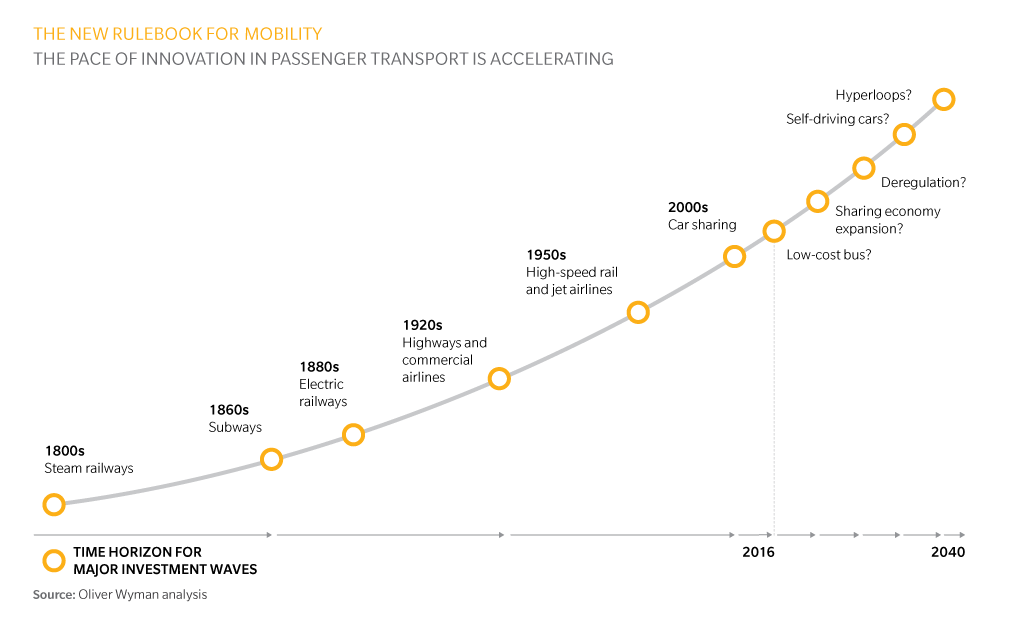The house tells your mobility provider, which computes the journey and sends an itinerary to your smart device. At the appointed time, a driverless car rolls up and greets you by name, and you say hello to a couple of people already seated inside. The car drops you all at an integrated mobility hub, where you board a 750 miles per hour hyperloop that whisks you to your target city in mere minutes. An autonomous bus waits at the station to take you to your final destination, a shared office space in the city center.
To determine if this is what mobility could look like in the year 2040, Oliver Wyman recently conducted a survey of more than 200 executives and experts in the transportation industry globally. Driven by the fourth industrial revolution, technological convergence, new entrants in the mobility space, and changing travel behaviors, we expect the pace of innovation in passenger transportation to accelerate over the next quarter century. Disruption to existing business models will be widespread, and 80 percent of passenger transportation incumbents say they don’t feel well prepared for what’s coming.
80% of incumbents aren’t prepared for mobility disruptions

About Authors
Joris D’Inca is a Zurich-based partner and Carolin Mentz is a Munich-based principal in Oliver Wyman’s Transportation practice.
This article first appeared in Forbes.


